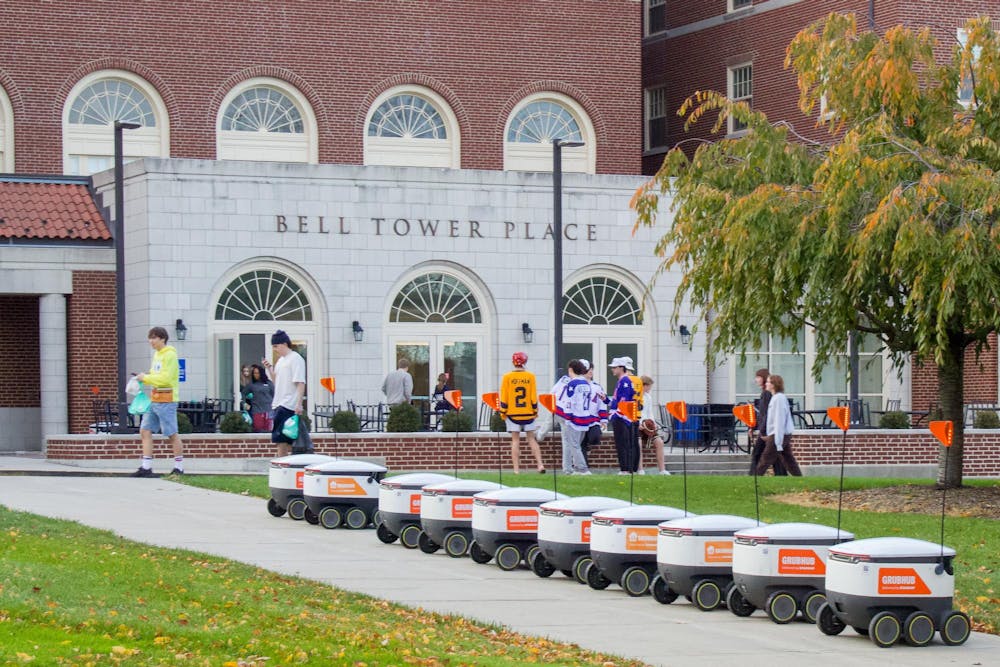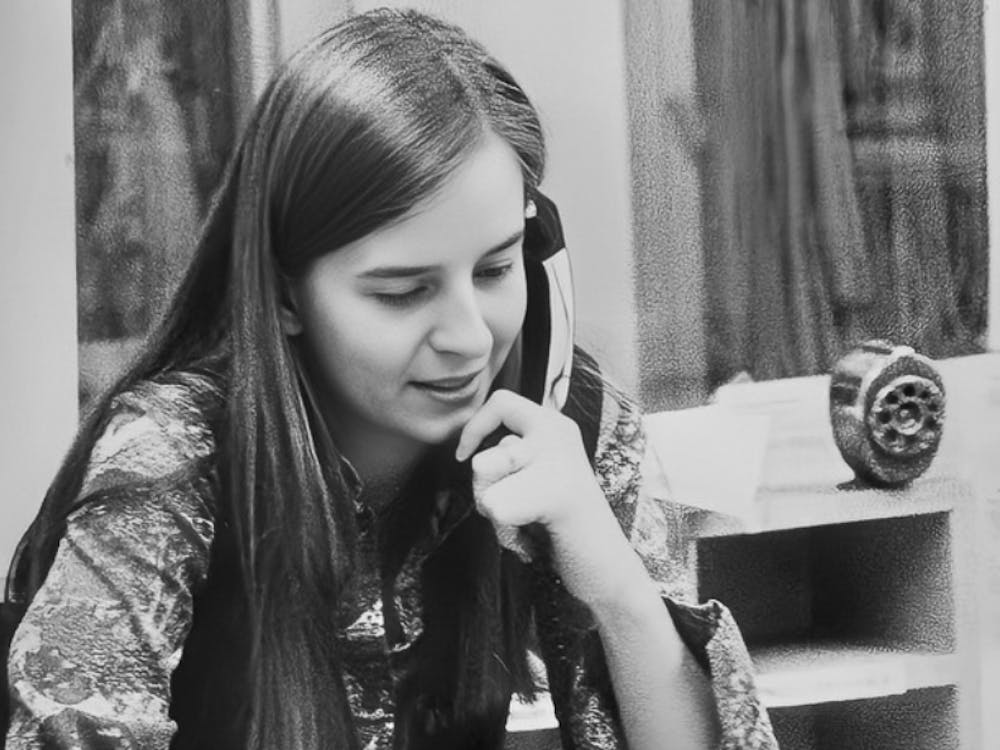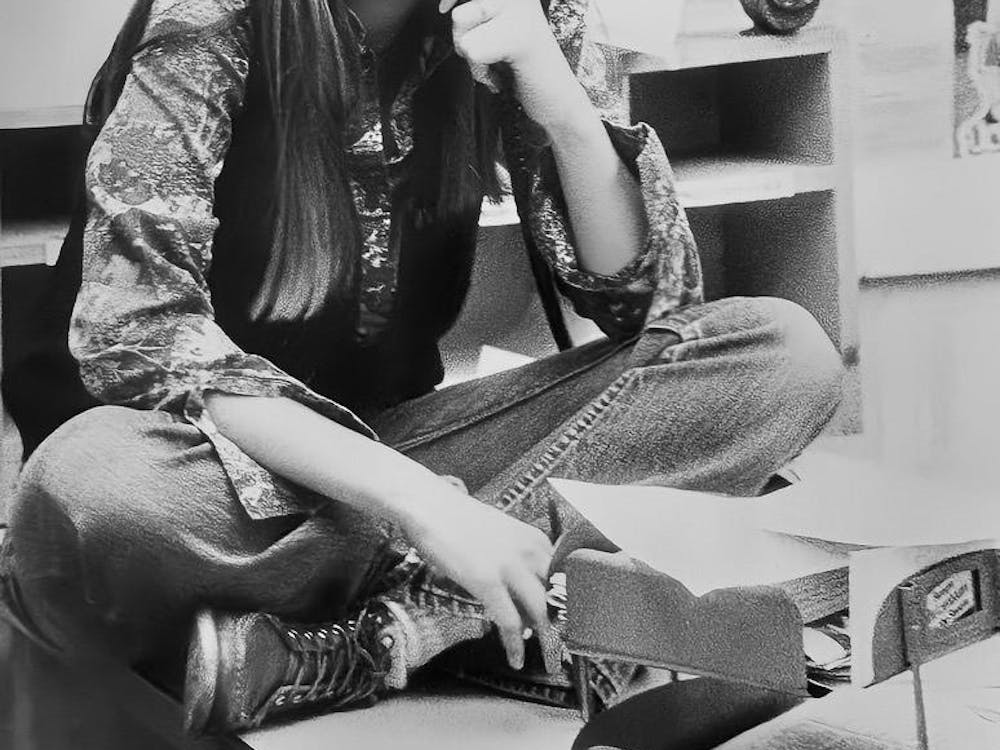My friends and I often joke that society is definitely going to fall into a digital, automated ruin based on how much we love humanizing our robots. For example, you probably know someone whose favorite film is “Wall-E,” seen TikToks of people imagining what ChatGPT looks like to them (which is oddly enough almost always a man) or innocuously named your household Roomba.
Grubhub robots, the colloquial name for Starship delivery units, are no different and have unintentionally become a part of campus culture at Miami University. But what lessons can we take away from Grubhub robots other than food?
Follow your own path
A popular complaint of the Grubhub robots is that they have no idea where they're going. They're either waiting for absolutely no one at a crosswalk or congregating with other robots outside Bell Tower. Even when they seem productive, they don't know the quickest way.
By unintentionally invoking the virtue of patience, they make their own paths in a similar manner to first-year students with Google Maps. Both move a bit haphazardly and are too rigid to follow digital guidelines instead of what’s physically there.
Humans have the benefit of learning from patterns and not making the same mistake twice, while automatons may need time to implement that concept themselves. Either way, it might take you longer to get to where you're going, but sometimes the journey is more worthwhile than the destination … unless you're waiting for food.
Do what others won't
Grubhub robots are not a necessity, but they remain popular enough to line the sidewalks. Maybe your parents complained about them before, driving past them on East Street with a remark on how people nowadays are too lazy to get their own food. Whatever the reason people have to use them, the extra charge is the same.
Doing the things most people would rather not do can open doors, or at least earn you a little more cash. Don't undersell yourself, though; use your labor and time constructively. If your idea of spending time with your friends is walking to get coffee and enjoying the ambience there, then do so. But it’s completely understandable to get a delivery instead when you’re five assignments behind and have gotten enough fresh air running back and forth between classes. So, know your priorities and take advantage of opportunities other people ignore.
Don't be afraid to ask for help
While paranoia about artificial intelligence and further industrialization is on the rise, these robots hardly seem to be a threat. They fall off the sidewalk, get stuck in a loop with another robot or simply confuse themselves on unfamiliar grounds. But they never fail to alert humans of their presence.
Some students are indifferent to their plight, but many do help them and guide them to their merry way. It's never a bad idea to reach out when you need to, even if it might seem stupid to onlookers.
Enjoy what you're reading?
Signup for our newsletter
Grubhub robots wouldn’t be here if there weren’t a demand for them. We might ignore the implications due to the normalized automatization the food and service industry has undergone in recent times, where ordering online or from a kiosk is people’s first option. But step back and think about how many restaurants you have given your number to just to know when your food was ready, or times you had to scan a QR code to access a menu.
It’s interesting to see how convenience is treated to be synonymous with accessibility, which somehow cuts out the “middleman” centers more “man” in the equation when it simply redirects the labor towards maintenance of what we created. Grubhub robots might teach us something about the future, but it might not be what we want to hear.
Maureen Wilson is a first-year student majoring in media and communication and minoring in creative writing and journalism. She is an opinion writer for The Miami Student. Maureen is involved in Sigma Tau Delta, Asian American Association, MU Kababayan and Bridges Scholars.




